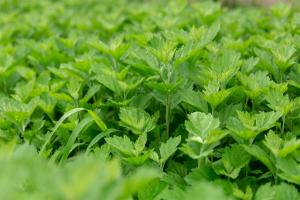Can You Use Tap Water to Water Plants?
Many gardeners and plant enthusiasts have debated the question of whether tap water is suitable for watering plants. While some argue that tap water is harmless to plants, others believe that it can do more harm than good. Here's what you need to know:
Treatment of Tap Water
Tap water is treated before it reaches our homes to remove any harmful contaminants. This treatment process involves adding chemicals, such as chlorine or fluoride, to the water. While these chemicals are safe for us to consume, they can be harmful to plants, especially in large quantities.
The Effects of Tap Water on Plants
Exposure to high levels of chemicals in tap water can cause damage to plant foliage and roots. It can also disrupt the growth and development of plants, leading to stunted growth and poor health. Additionally, tap water can contain minerals such as calcium and magnesium, which can build up in the soil over time and affect the pH level.
Alternatives to Tap Water
One solution to the problem of harmful tap water is to use filtered or distilled water. These types of water remove impurities and chemicals from tap water, making them safer for plants. Rainwater is also a good option for watering plants, as it is naturally free of chemicals and minerals.
Tips for Using Tap Water
If using tap water is your only option for watering plants, there are a few tips to keep in mind. First, let the water sit out for at least 24 hours before using it. This allows any chemicals in the water to dissipate. Second, water the soil directly rather than the plant foliage to avoid damage. Lastly, monitor the soil pH level and add soil amendments as necessary to counteract any mineral build-up from tap water.
Conclusion
While tap water can be used to water plants, it is important to be mindful of the potential harmful effects of chemicals and minerals. If possible, using filtered or distilled water, or rainwater, is the better option. If using tap water is unavoidable, taking precautions such as letting the water sit before using and monitoring soil pH can help ensure the health of your plants.

 how many times do yo...
how many times do yo... how many planted tre...
how many planted tre... how many pine trees ...
how many pine trees ... how many pecan trees...
how many pecan trees... how many plants comp...
how many plants comp... how many plants can ...
how many plants can ... how many plants and ...
how many plants and ... how many pepper plan...
how many pepper plan...































